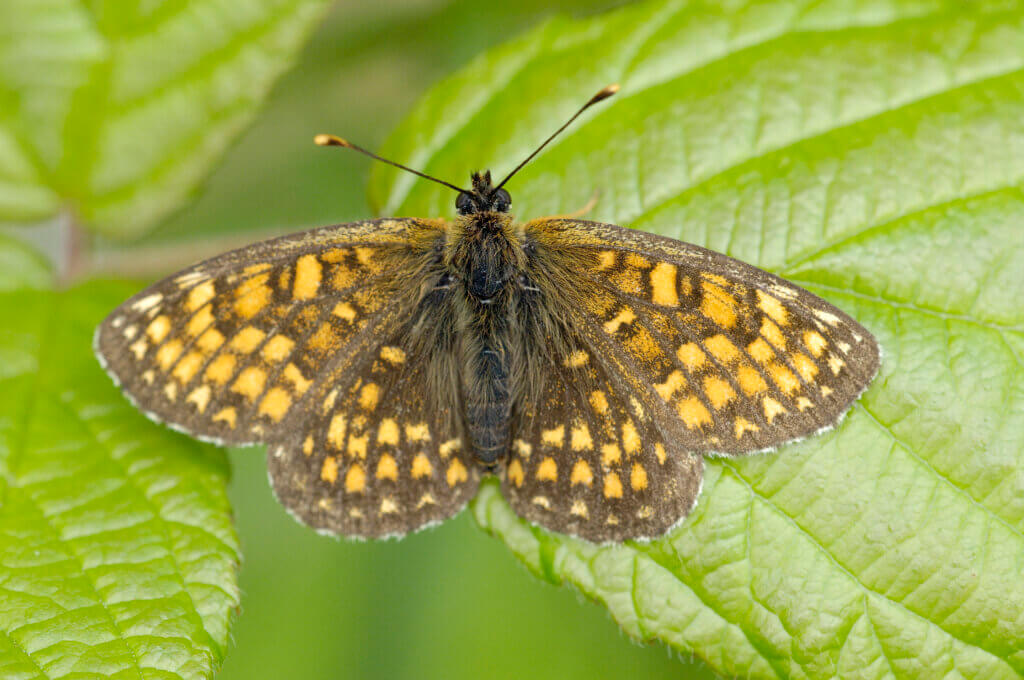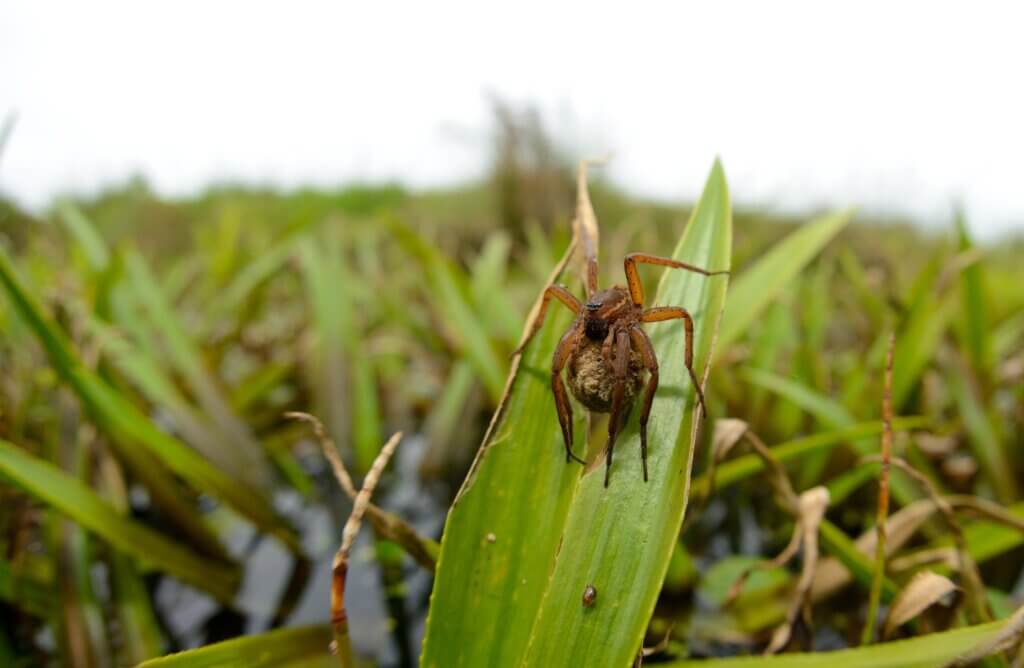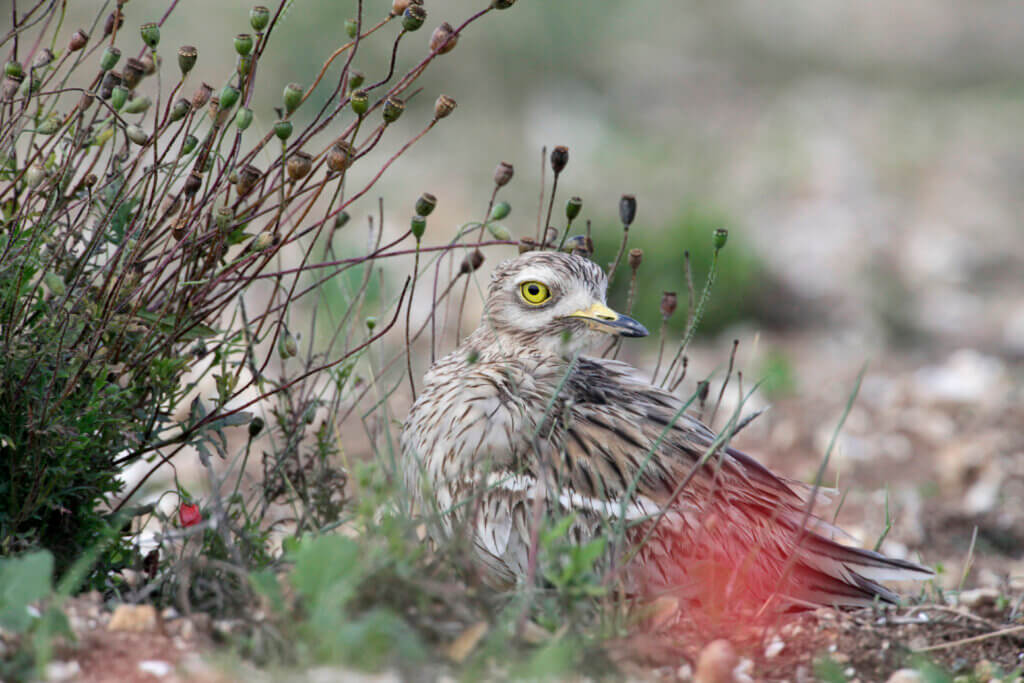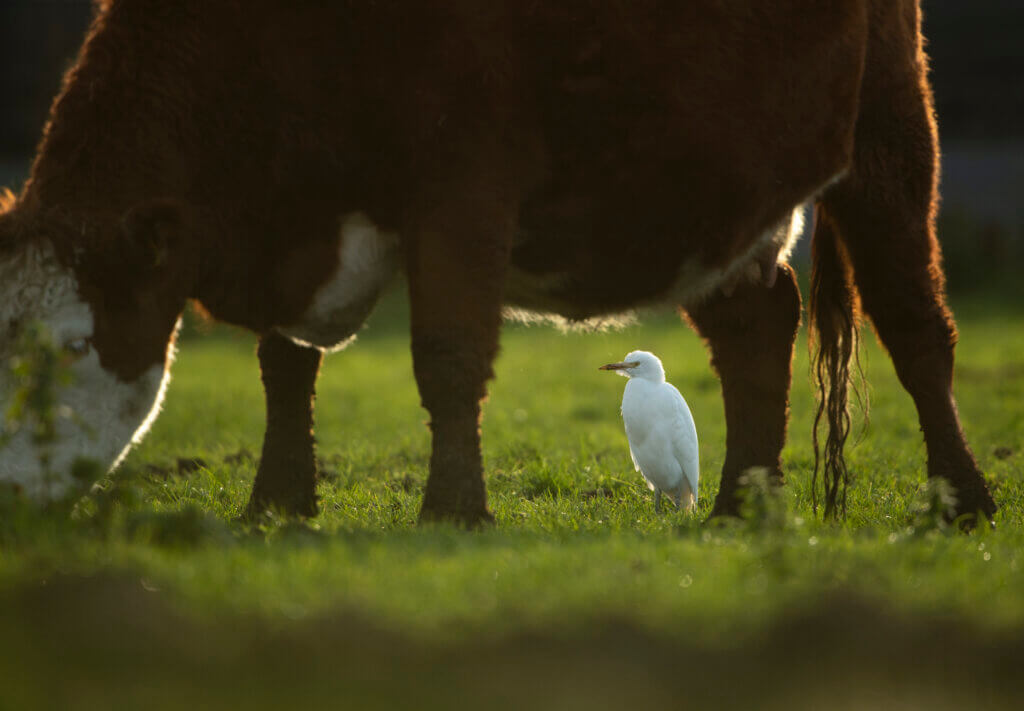2020: an amazing year for wildlife on RSPB reserves

- New report shows that despite Covid restrictions affecting vital conservation work many threatened species had a bumper year on RSPB reserves in 2020.
- Highlights included breeding spoonbills, egrets and rare plants, butterflies and spiders.
- More than 18,500 species have now been found living on RSPB reserves.
Despite Covid-19 restrictions affecting access and conservation work in the first half of the year, 2020 proved to be an amazing year for wildlife on RSPB reserves with many threatened species having a record breeding season and many other species doing well.
The new Wildlife on RSPB nature reserves 2020 report brings together all the information about the wildlife on the RSPB’s nature reserves and it reports on the ups and downs of the bird breeding season, together with other wildlife highlights. The RSPB currently manages 224 nature reserves across England, Scotland, Wales and Northern Ireland. The area of these reserves covers 160,358 hectares, an area 4 times the size of the Isle of Wight.
The reserves, perhaps best known for the birds found there, are also crucially important for many other kinds of plants and animal. In 2020, the number of species recorded on RSPB reserves exceeded 18,500 species with more than 3000 of these being of conservation concern.
The RSPB’s Director of Conservation, Martin Harper said “Last year was exceptionally difficult for everyone. Like every part of society, nature conservation was affected by the coronavirus and the restrictions that dealing with it required. Vital conservation work had to be paused and much of the monitoring work that we would normally carry out was not possible, however, many of the species that call our reserves home managed to have a successful year.”

2020 Highlights
- Spoonbill: the undoubted highlight of 2020 was the successful breeding of spoonbills at RSPB Havergate Island. Three pairs nested at this reserve and was the first successful nesting by spoonbills in Suffolk for at least 300 years. Meanwhile at RSPB Fairburn Ings where spoonbills first bred in 2017 there were six or seven nesting attempts, which are thought to have fledged a total of five young.
- Great white egret: three pairs nested at RSPB Burton Mere wetlands in the Dee estuary and fledged and impressive 11 young. At least three great white Egret in breeding plumage displayed and built nests on another RSPB nature reserve where they have not previously bred.
- Cattle egret: these birds bred for the first time at RSPB Pagham Harbour with five pairs fledging five young. Adult cattle egrets were also seen flying to and from the heronry at RSPB in Northward Hill where they bred for the first time in 2019.
- Stone-curlew: 2020 was a record-breaking year for breeding stone curlews on RSPB nature reserve with the highest number ever recorded. 29 compared with 23 on the same sites in the previous year.
- Roseate tern: numbers of breeding birds on RSPB Coquet Island increased for a fifth year in a row reaching 130 pairs, the highest number since the 1970s.
- Heath fritillary: RSPB Blean Woods nature reserve was found to be the most important site for this rare butterfly in the UK.
- Fen raft spider: this strikingly marked spider is the largest UK spider with a span of up to 7 cm. In 2012, they were reintroduced to RSPB Cantley Marshes reserve where they have thrived and last year, they were found to have colonised the nearby reserve at RSPB Strumpshaw Fen.
- Crane: over a third of the UK breeding population is now found on RSPB nature reserves. In 2020, there were 23 pairs found across nine sites including a pair that nested on a RSPB nature reserve on the Suffolk coast. This is the first time cranes have ever been recorded nesting in coastal Suffolk.
- Bearded Stonewort: This Critically Endangered plant was recorded at new ponds at RSPB Saltholme in 2020. It was previously only known from sites near Peterborough and the Western Isles.
However, despite the continued success for most species there were also some disappointments for a small number of others.
- Hen harrier: At RSPB Geltsdale, there was initial optimism when at least six birds were present in March 2020. Subsequently they were two nests with clutches of five and seven eggs both of which were provisioned by the same male. However, the male disappeared in May resulting in both nests failing. A second adult male which has been present also disappeared around the same time.
- Black-winged stilt: No pairs nested on RSPB reserves in 2020 for the second year running, despite nesting in every year from 2014-2018.
RSPB nature reserves contribute significantly to nature conservation across the landscapes and areas they are part of, and despite covering only about 0.6% of the UK’s land surface, support more than 10% of the breeding population of 35 species of bird. However, nature reserves alone will not be able to stop the UK’s wildlife from vanishing.

Martin Harper said “Through our amazing network of nature reserves the RSPB provides important places for nature and helps visitors to see and connect with nature. However, according to the last State of Nature report, 41% of UK species are in decline and 133 species have been lost from our shores completely since 1950. While nature reserves (managed by the RSPB or other conservation organisations) are magical places, on their own they will never be enough to reverse these declines. In order to stem the loss of nature and help revive our world, governments across the UK need to ensure 30% of land is protected and managed for nature while action is taken to remove the direct threats facing threatened species such as illegal killing or the introduction of invasive non-native species.”
Although the UK claims to be protecting large areas of land (28%) and sea (24%), closer inspection reveals that this includes National Parks and Areas of Outstanding Natural Beauty that are not well managed for nature, and Sites of Special Scientific Interest (SSSIs) that are in poor health and not adequately monitored. With recent reports of a lack of inspections or assessments, along with species loss at these locations, the amount of land protected and well-managed for nature could be as low as 5% of the UK. At sea, although new protected areas have been announced, only 10% of these are being actively managed.

To find out more about RSPB reserves and how to visit go to www.rspb.org.uk/reserves
To read the full report go to https://www.dropbox.com/s/lpauapir9liry4i/Wildlife%20on%20RSPB%20nature%20reserves.pdf?dl=0
ENDS
[registration_form]
Two male hen harriers ‘disappear’ at RSPB Geltsdale, depressingly predictable. ‘Disappeared’ to order for future mud slinging at the RSPB? A shame black winged stilts haven’t nested for the last two years, but I was surprised they’d bred for four years in a row before that. Amazing that the cattle egret is becoming a regular breeder, who would ever have guessed that thirty years ago? A fascinating time for the breeding bird list. In the seventies the serin was going to become the next coloniser, we are still waiting for it, the glossy ibis now looks like a more likely candidate for that position!
As I have said before, the RSPB does a tremendous job and nature in the U.K. would be so much worse off without them. This is especially true in the current situation with this Westminster Government being anti- nature and this con man in 10 Downing Street.
The failure of the two Hen Harrier nests at Geltsdale because of the males so called “disappearance” is very worrying. No doubt this “disappearance” is very likely associated with driven grouse shooting and the illegal acts associated with the practice.
One of the highest priorities for nature conservation must be to rid our uplands of this so called blood sport. We must achieve a total ban as soon as possible on Driven Grouse Shooting and all the associated atrocities it inflicts on nature and the environment.
Hi Alan, I see there is a new Petition on Banning Driven Grouse Shooting just released. Not sure of it’s provenance. 70+ signatures so far (not mine, yet!)
https://petition.parliament.uk/petitions/583224
Thanks for this Alan – didn’t realise they shot driven grouse at Geltsdale.
There will doubtless be those within Game management and their supporters who will quote that X Hen Harriers bred successfully on grouse moors but that the RSPB are hopeless conservationists because two females( they will say pairs!) failed at Geltsdale. They will of course not mention the DGS neighbours where there has been some suspicious failures in the past and that folk presumed associated with these estates have trespassed in previous years and persecuted HH nests. Seems like Bowland a few years ago with nests failing when provisioning males disappeared whilst on non RSPB land, a sad, very annoying but hardly unpredictable probably illegal fate for fantastic birds.
The rest as ever is fantastic news from RSPB. I have one major gripe in that their change of policy towards game bird shooting has no mention at all in the current Nature’s Home, which is becoming less and less readable as it dumbs down.
Paul, I searched Nature’s Home for any mention of the joint effort by 50 Conservation Organisations to influence Government’s attitude. A missed opportunity to ask the 1.2m members to sign. Why, why, why!
Because they will say the magazine is prepared well in advance, you and I might say its because there is a lack of joined up thinking and communication from the top. Whilst my membership is currently not in any doubt I remain extremely disappointed by RSPB currently, not helped by the whole editorial voice of NH, frankly it is bloody woefully inadequate currently!
Paul/Richard – one issue is that the benefits of a good Environment Bill would mostly be felt in England and the RSPB truly is a UK-wide organisation still. Devolution has its testing times.
Indeed Mark but there is virtually no campaigning in NH whether it applies to England, Wales, Scotland or Northern Ireland despite the natural world being in crisis. The magazine is utterly woeful in that regard and I think that is very worrying for the future direction of RSPB. Yes we know this is a non receptive government but in many ways that means, to me at least, that campaigning vigorously, informing the membership and getting them on board is even more important.
Paul – I agree
I thought you were mistaken about the coverage in NH so I went back to check. What I’d thought was promotion for the State of Nature petition is for a completely new one; Revive our World. I can’t believe it!
When the RSPB was founded, it consistently punched above its weight. Now it consistently punches below its weight. In fact, it scarcely punches at all. I fear all the great work done on its reserves is undermined by the organisation’s tepid leadership. As for Nature’s Home, it seems to deteriorate with each new edition – it seriously needs a revamp.